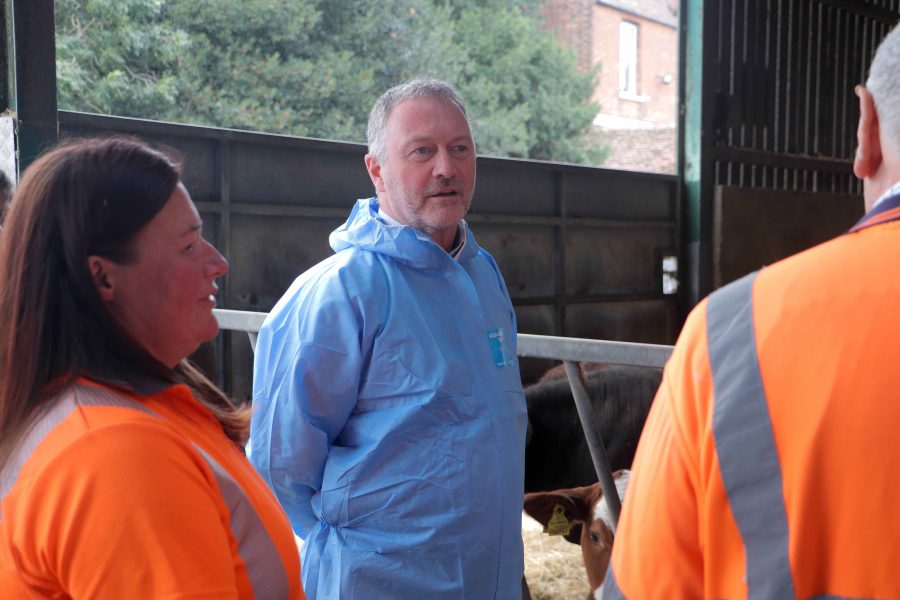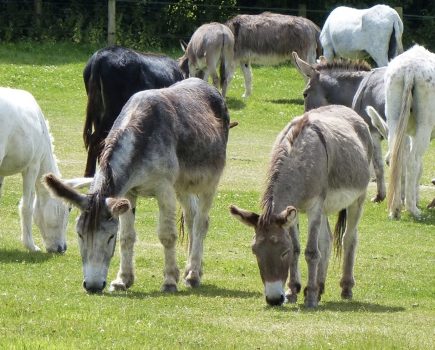Secretary of State, Steve Reed, visited an Essex farm last week to hear from NFU representatives and a farmer who recently had animals tested for bluetongue serotype 3 (BTV-3).
The Secretary of State, accompanied by Animal Plant Health Agency (APHA) staff, including APHA’s Veterinary Head of Outbreaks for England Sascha Van Helvoort, heard about the impact this disease has been having on the industry and the importance of reporting livestock suspected of having the disease.
Bluetongue virus is primarily transmitted by midge bites and affects cattle, goats, sheep, deer and camelids, with case numbers now increasing dramatically in northern Europe. Symptoms include fever, lethargy, ulcers or sores in the mouth or nose, and reduced milk yield.
Disease control zones were put in place to control the movement of potentially affected animals as soon as bluetongue serotype 3 (BTV-3) was detected. These zones have been under constant review and adjustment as the disease situation has developed, such as when evidence of local transmission of disease emerged. A single Restricted Zone is now in place covering the east of England from Lincolnshire to West Sussex.
Secretary of State for Environment, Food and Rural Affairs, Steve Reed, said: “I have heard first-hand the experiences of farmers battling this disease and we are working hard to prevent its spread into other areas of England and Great Britain.
“We understand restrictions can have an impact but stress the importance of everyone adhering to these. We are committed to working with everyone affected and urge people to report livestock they suspect have the disease.”
Sascha Van Helvoort, APHA Veterinary Head of Field Delivery and Veterinary Head of Outbreaks for England, said: “The increasing number of bluetongue virus (BTV3) cases demonstrate the importance of vigilance from all livestock keepers and farmers.
“We have field teams, vets and scientists across the country who are working hard to help tackle bluetongue virus and ensure farmers are being supported.
“If you have any suspicions of disease, you must report this to the Animal Plant Health Agency immediately so we can provide assistance.”
Defra has permitted use of the currently available unauthorised BTV-3 vaccines, subject to licence. We recommend animal keepers work with their veterinarians to decide if vaccination is right for their animals. To prioritise initial supplies, a general licence allows those in high-risk counties of England to use the vaccine. Specific licences can be applied for through APHA by animal keepers elsewhere in England who wish to use the vaccine
BTV is a notifiable disease. Suspicion of BTV in animals in England must be reported to the Animal and Plant Health Agency on 03000 200 301, 03003 038 268 in Wales or your local Field Services Office in Scotland.
View more information about bluetongue. Check the list of all bluetongue cases and control zones and view the bluetongue interactive map.








